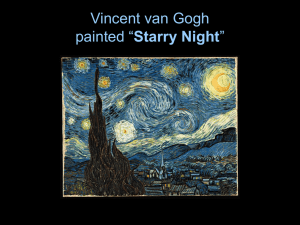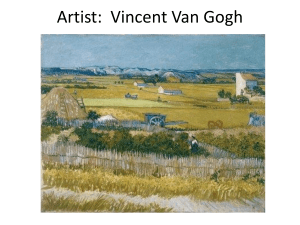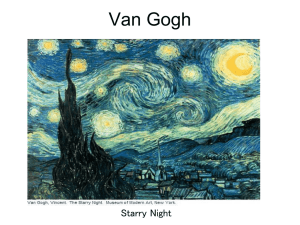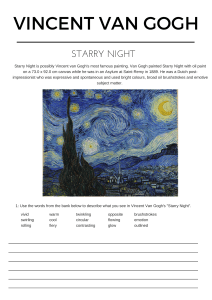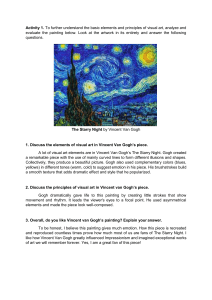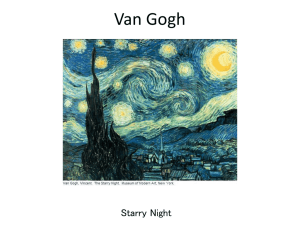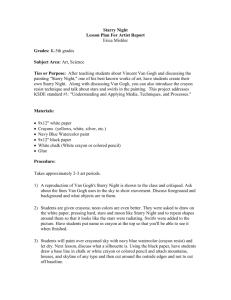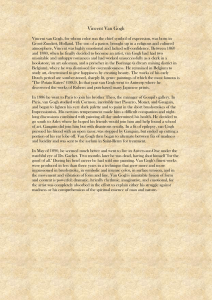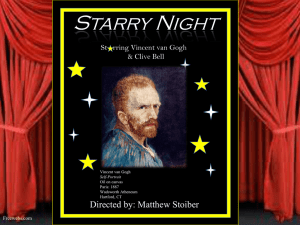Starry Night Art Lesson Plan: 2nd Grade Activity
advertisement
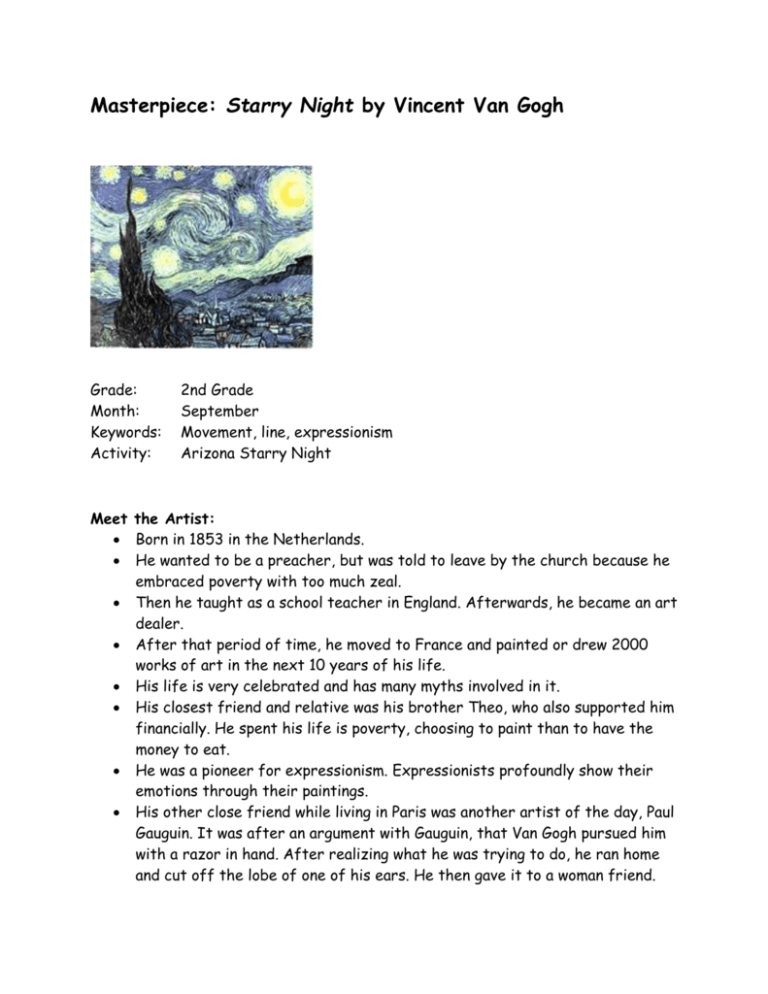
Masterpiece: Starry Night by Vincent Van Gogh Grade: Month: Keywords: Activity: 2nd Grade September Movement, line, expressionism Arizona Starry Night Meet the Artist: Born in 1853 in the Netherlands. He wanted to be a preacher, but was told to leave by the church because he embraced poverty with too much zeal. Then he taught as a school teacher in England. Afterwards, he became an art dealer. After that period of time, he moved to France and painted or drew 2000 works of art in the next 10 years of his life. His life is very celebrated and has many myths involved in it. His closest friend and relative was his brother Theo, who also supported him financially. He spent his life is poverty, choosing to paint than to have the money to eat. He was a pioneer for expressionism. Expressionists profoundly show their emotions through their paintings. His other close friend while living in Paris was another artist of the day, Paul Gauguin. It was after an argument with Gauguin, that Van Gogh pursued him with a razor in hand. After realizing what he was trying to do, he ran home and cut off the lobe of one of his ears. He then gave it to a woman friend. Van Gogh never felt that his art was appreciated, which pained him very much. It wasn’t entirely true; many of his fellow painters saw him as a genius. He was a prolific painter and in the end, painted a painting a day. However, he only sold 1 painting in his lifetime. He eventually committed himself to a hospital to get help. Although never confirmed, it was rumored that he had anything from paint poisoning, manic depression to malnutrition. It was from this hospital that many of his paintings were painted, including Starry Night; his most recognizable painting. Eventually, his depression overtook him, he shot himself in the stomach and refused treatment. He died 2 days later in his brother’s arms. His brother died 6 months later. It was Theo’s wife that made sure that Vincent Van Gogh got the attention he deserved in his lifetime. His paintings are some of the most expensive in the world to buy. Possible Questions: What are the colors that you see? Are they mostly cool colors or warm? What do the swirling lines remind you of? What do they represent? What is the dark image in the middle of the painting? When was it painted? Is Starry Night a good title? Would you want it in your room? How do you think Van Gogh felt when he painted it? What is he expressing? Cool Facts about the Artist: Vincent van Gogh did not cut off his ear. He only cut off a small portion of his ear lobe. Van Gogh created his most famous work The Starry Night while staying in an asylum. Vincent only sold one painting during his lifetime and only became famous after his death. Activity: Arizona Starry Night Materials needed: blue construction paper, pencils, black markers, construction paper crayons, erasers Process: 1. Display and discuss print. Briefly discuss the artist’s life and times in which he lived. Discuss the elements of the composition. Point out the foreground tree shape, the middleground hills, and the background stars. 2. Have students write their name and room number on the back of their paper. 3. On a 12" x 9" blue paper, ask the students to draw their own cactus or bush, just to the left of the center. Behind the tree have them draw several simple hills. Lastly, in the sky draw at least 3 small circle stars. The students are to make the stars and hills "grow" with a series of larger circles and curves. Encourage them to make just a few of each with lots of space in between. 4. Once the pencil lines are drawn, they need to be traced with a thin black marker. 5. Lastly, use the construction paper crayons to color all the shapes in. Today Art Masterpiece was presented in your child’s classroom. We discussed the artist Vincent Van Gogh, who is known for his use of vivid colors and rich painting style. We studied his work entitled “Starry Night”. We discussed the terms movement, color, and mood (expressionism). Your child used his/her creativity to produce a masterpiece inspired by this artist. Look for it to be displayed and/or come home at the end of the year.
